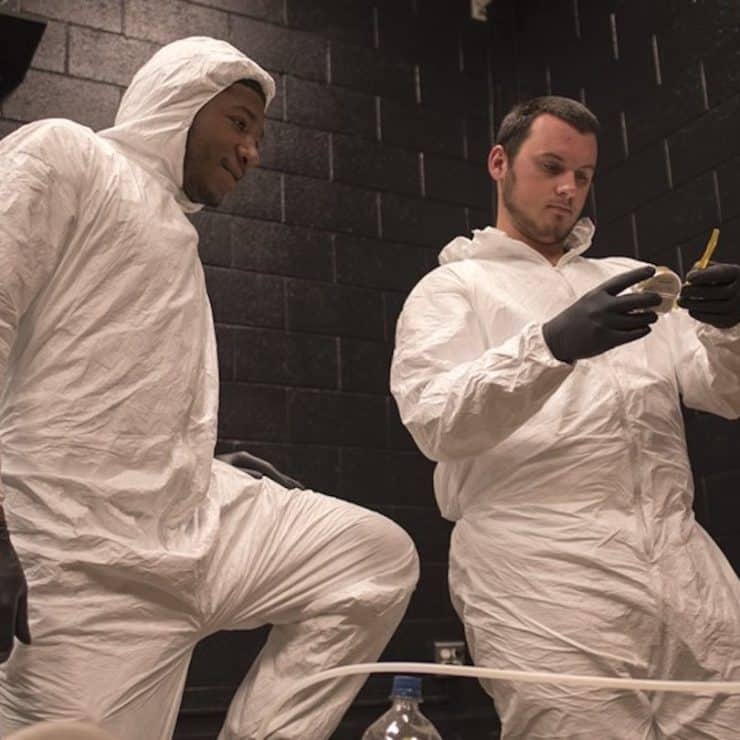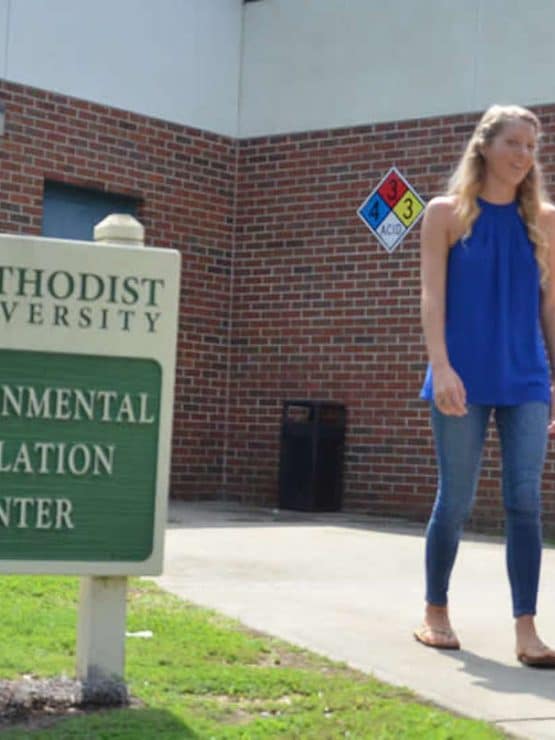
Environmental Health & Safety
Environmental, Health, and Safety (EHS) is an interdisciplinary field that studies and implements laws, rules, regulations, professional programs, and workplace efforts to protect the general well-being and health and safety of the general public and employees in the workplace as well as preservation of the environment. EHS professionals are active in a variety of industries and have a direct impact on the operations and activities of the organizations and communities with which they work.
The Environmental, Health, and Safety program provides fundamental knowledge of environmental science, pollution control and management, occupational and workplace safety, regulatory management and analysis, and program implementation and management that informs and affects the day-to-day operations of companies and individuals alike. Students learn through hands-on instruction, visits to local entities for first-hand perspective of EHS operations in action, practical application, and project-based work that makes use of current events and historical precedent. Graduates are prepared for practice as an EHS professional in both the public and private sector for industries such as manufacturing, construction, healthcare, entertainment, and retail, or to continue studies at the graduate level. Regardless of career path, all graduates possess the necessary critical-thinking, communication, and technical skills to serve as leaders in the industries and communities to which they belong.
Common Career Paths
Graduates within our Environmental Health & Safety can find careers in a wide range of setting including:
- Governmental/Regulatory Agencies
- Business/Industry
- Public Health
- Emergency Management
- Education
- Research
- Public Safety
Common Salary Ranges for Graduates
There are numerous career opportunities available within the Environmental, Health and Safety field. Below are examples with the median annual salary according to the Bureau of Labor Statistics. Some of these opportunities may require further education past the undergraduate level and starting salaries may fall below this median level.
-
Construction and Building Inspectors: $67,600
-
Fire Inspector: $71,420
-
Occupational Health and Safety Specialist: $77,580
-
Environmental Scientists and Specialists: $78,980
-
Health and Safety Engineer: $103,6940
Average Tuition Cost
The average cost for an incoming residential freshman to attend MU is less than $18,000 – similar to the cost of attending one of the big-box public schools, but with the enhanced value of a highly-regarded private school with a 12:1 student-to-faculty ratio.
While tuition varies, depending on a student’s financial aid package, it’s important to know that the average financial award for an incoming residential freshman at MU is more than $34,000.
Financial Aid & Scholarships
More than 97% of MU students receive some form of financial aid, with the University offering more than $24 million annually to students for scholarships. If a student is active military, family of active military, or a veteran, they may also qualify for MU’s military education benefits.
Interested in Methodist University’s Environmental Health & Safety program?
If you have questions, see the FAQ below or reach out to Dr. Denise Bauer using the contact info at the bottom of the page. If you’re ready to apply today, click the button below!
Frequently Asked Questions
FEMA Approved Institution
Methodist University has maintained a positive relationship with the Federal Emergency Management Agency (FEMA). Many of our students are accepted into specialized training classes offered at the Emergency Management Institute in Emmitsburg, Md. Our professors make it a point to attend the annual FEMA Emergency Management Higher Education Conference to stay up to date on the newest material available in the field. You will find Methodist Universities ENM Department listed as an approved institution on their site.
Contact
Denise Bauer, Ph.D., CPE

